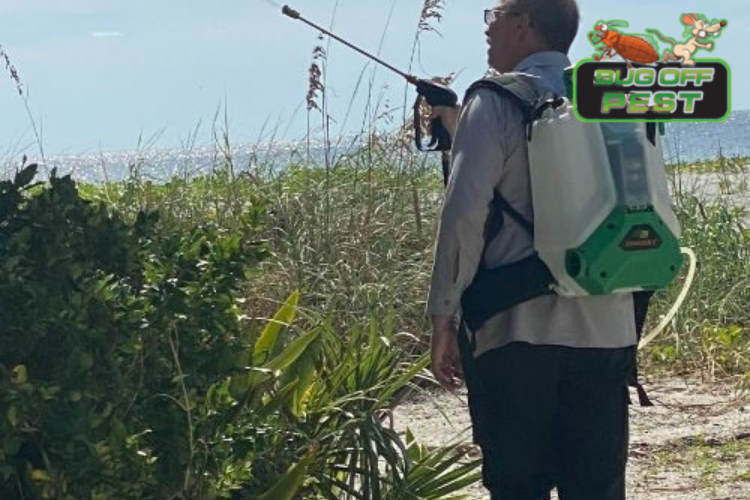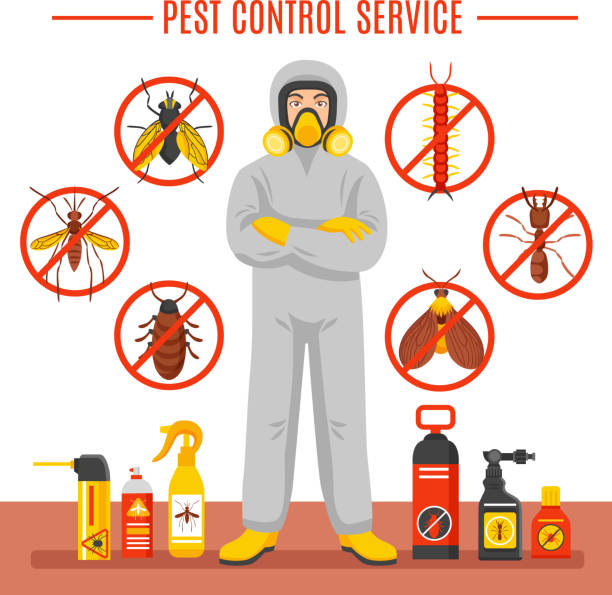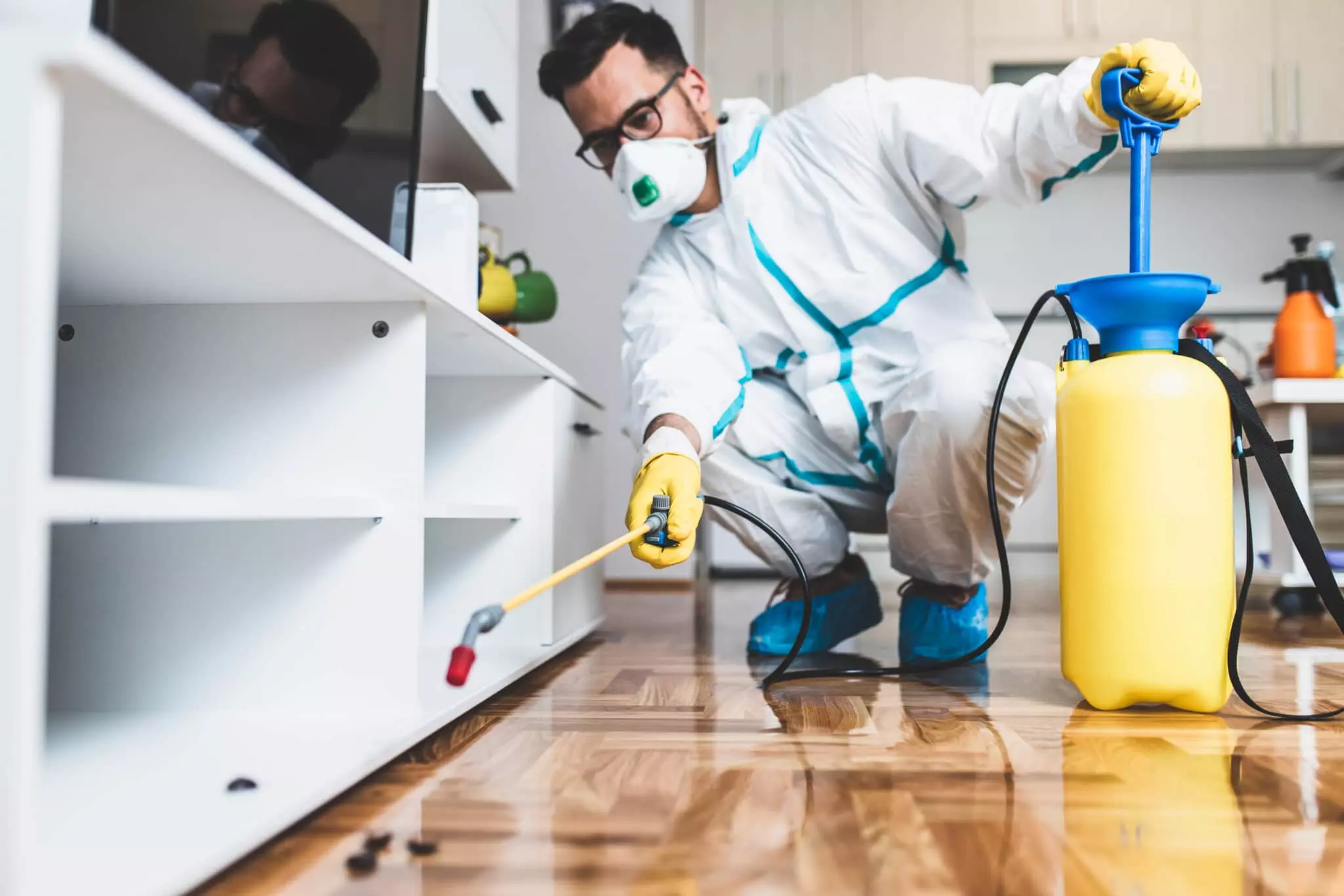Effective Pest Control in Port Charlotte for a pest-free property.
Effective Pest Control in Port Charlotte for a pest-free property.
Blog Article
Discovering Ingenious Techniques and Products for Reliable Parasite Control
The landscape of pest control is evolving, noted by the introduction of ingenious strategies and products designed to enhance effectiveness and sustainability. From smart catches equipped with sophisticated surveillance systems to organic methods that use all-natural predators, these improvements offer a paradigm shift in exactly how we come close to pest monitoring. In addition, environmentally friendly chemical alternatives and scent disturbance techniques offer targeted options that straighten with ecological stewardship. As the industry comes to grips with these growths, a closer examination reveals not only their ramifications however also the potential difficulties that may develop in their application.
Smart Traps and Monitoring Equipments
Exactly how can contemporary innovation enhance insect management? One considerable improvement is the advancement of smart traps and monitoring systems, which give real-time data and analytics for effective pest control. These systems make use of sensing units and cordless innovation to find bug activity, signaling building managers and bug control professionals to problems prior to they intensify.
Smart catches are geared up with features such as lure stations that draw in parasites and record them effectively. These catches can be kept track of remotely, enabling timely interventions and minimizing the demand for comprehensive chemical applications. The integration of maker discovering formulas allows these systems to distinguish between target insects and non-target varieties, boosting the precision of insect control steps.
Furthermore, the data gathered from clever traps can be analyzed to identify patterns in pest actions and environmental elements adding to invasions (Pest Control in Port Charlotte). This details is important for creating targeted parasite administration approaches tailored to particular settings. By accepting smart traps and keeping track of systems, insect control specialists can enhance their functional efficiency and reduce the ecological effect of parasite management, eventually resulting in safer and a lot more lasting techniques in the industry
Biological Pest Control Approaches
Utilizing natural predators and parasites, organic parasite control techniques supply an eco-friendly alternative to chemical therapies. This strategy includes the intro or improvement of specific microorganisms that can normally control parasite populaces, thereby minimizing dependence on artificial chemicals. Typical examples consist of making use of ladybugs to regulate aphid problems and parasitical wasps to target caterpillars.

Organic control can be categorized right into three main approaches: classic, augmentative, and conservation. Classic biological control involves importing all-natural opponents from the bug's indigenous environment, while augmentative control includes enhancing the populace of existing natural adversaries through launches. Conservation methods concentrate on developing conditions that sustain these advantageous microorganisms in the community.
The efficiency of biological insect control pivots on understanding the intricate interactions within ecological communities. It often requires a detailed assessment of pest characteristics and the life cycles of both the insects and their all-natural opponents. While biological methods may not provide prompt results like chemical choices, they add to long-lasting pest administration and environment health. As awareness of environmental problems expands, biological pest control methods are increasingly identified for their sustainable role in integrated insect administration programs.
Eco-Friendly Chemical Alternatives
Environmentally friendly chemical alternatives supply a viable solution for bug monitoring that decreases environmental effect while efficiently controlling parasite populations. These options are acquired from natural resources and are meticulously created to target certain insects without damaging helpful organisms, making them an important part of lasting parasite control techniques.
Among one of the most efficient environment-friendly alternatives are plant-based pesticides, such as neem oil and pyrethrin, which are stemmed from the seeds and flowers of various plants. These compounds interfere with the life process of bugs, lowering their populations without the toxic results connected with traditional chemicals - Pest Control in Port Charlotte. In addition, important oils like pepper mint and useful content clove oil exhibit repellent residential properties, further improving their energy in insect administration

Additionally, eco-friendly chemical alternatives commonly damage down more swiftly in the setting, lowering the risk of soil and water contamination. This characteristic aligns with the raising customer need for sustainable methods in agriculture and urban insect control. As research proceeds to breakthrough, the growth of cutting-edge green formulations will additionally boost efficiency and broaden application locations, allowing pest administration specialists to embrace greener, much more liable techniques in their methods while securing human health and the setting.
Pheromone Interruption Techniques
Another cutting-edge technique in sustainable bug administration is using scent disturbance methods. These techniques exploit the natural chemical signals, or scents, that insects utilize for communication, particularly in breeding habits. By disrupting these signals, bug populations can be effectively taken care of without turning to damaging chemicals.
Scent catches are commonly employed in this approach. Over time, this can lead to a significant decline in bug populations.

Integrated Parasite Monitoring Techniques
Reliable parasite control often needs an extensive technique, and Integrated Bug Management (IPM) techniques supply a framework for accomplishing this goal. IPM incorporates various administration practices to lessen insect populations while lowering reliance on chemical pesticides. This multifaceted technique begins explanation with detailed tracking and recognition go right here of insects, permitting for targeted interventions based upon certain pest stress.
Cultural techniques, such as plant turning and hygiene, play an important role in stopping insect facility. Organic controls, consisting of natural predators and parasitoids, are used to preserve parasite populations at workable degrees. When essential, selective chemical therapies are used, highlighting reduced toxicity to non-target types and the setting.
In addition, education and learning and outreach are essential parts of IPM, advertising recognition amongst stakeholders about sustainable methods and pest life cycles. The flexibility of IPM permits experts to respond efficiently to altering insect characteristics and environmental conditions. By utilizing this alternative technique, IPM not just enhances insect control effectiveness yet additionally adds to lasting environmental equilibrium. Inevitably, Integrated Bug Monitoring stands for a forward-thinking solution that lines up agricultural performance with ecological stewardship, making it important in contemporary insect control strategies.

Verdict
In verdict, the combination of cutting-edge techniques and items for effective bug control represents a considerable improvement in lasting parasite management. Smart traps and monitoring systems, organic bug control methods, green chemical choices, and pheromone disruption techniques collectively boost the efficiency of insect administration methods.
Report this page